Thunder in winter, Storing grains for famine
- April 11, 2023
- Posted by: admin
- Category: News
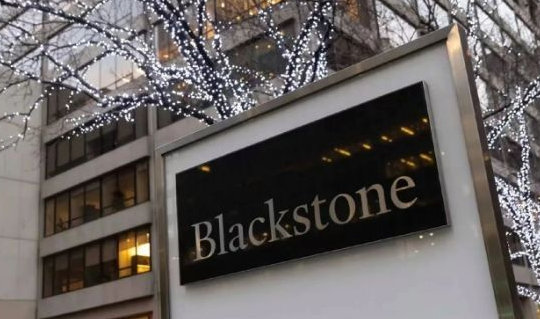
The first quarter of 2023 has been fraught with unexpected and shocking events in the financial industry. Silicon Valley Bank, Signature Bank, Silvergate Bank, and Credit Suisse have all experienced successive financial scandals and unexpected failures, with each one more surprising than the last. Even Blackstone Group, the top-tier private equity firm that manages nearly a trillion dollars in assets, was hit with substantial defaults. The top investment banks and wealth management firms that were once held in high regard have suddenly collapsed, leaving many to wonder how much damage has been done to people’s wealth. How many more potential disasters are lurking on the horizon? And what risks do people face in terms of their hard-earned assets?
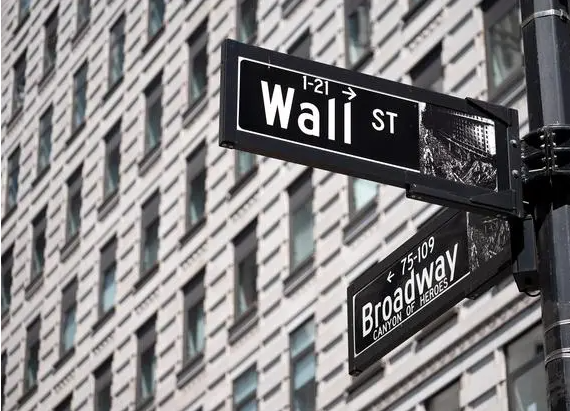
With the financial year just ended, let’s talk about where asset risk management failed in the cases of these financial scandals. How can ordinary people protect their assets and investments in the face of rapidly changing economic cycles, and what can be done to mitigate the risks of potential financial scandals? Is there any possibility of recovering from such failures? By examining these issues, we hope to provide insight and help you feel more secure in the current turbulent financial environment.
Silicon Valley Bank: the fleeting spring of a wild lily
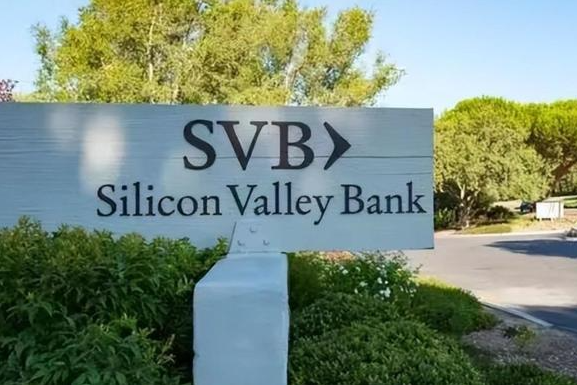
Founded in 1983, Silicon Valley Bank has been known as the “only global bank dedicated to innovation” and specializes in providing financial services to startups and venture capital firms. It has a wide customer base and strong market share in the Silicon Valley region and the European and American venture capital community. Silicon Valley Bank has supported many well-known startups such as Meta (formerly known as Facebook), Twitter, Dropbox, as well as many leading venture capital and private equity firms.
On March 7, 2023, as the 16th largest bank in the United States, Silicon Valley Bank (SVB) announced with great honor that it was named the best bank in the United States by Forbes Magazine for five consecutive years. However, just three days later, it closed its doors within 48 hours due to insolvency, shocking depositors who had no time to withdraw their funds. SVB’s bankruptcy was a seismic event in the European and American technology finance industry. Soon after, Signature Bank in New York State was also declared closed by regulatory authorities, and Silvergate Bank, a cryptocurrency bank, announced its bankruptcy on March 8. Within five days, three US banks had collapsed one after another. On March 11, the Federal Deposit Insurance Corporation (FDIC) took over Silicon Valley Bank and provided depositors with a maximum payout of $250,000 to ease the pressure of bank runs.
The following chart shows the historical stock price performance of Silicon Valley Bank, which clearly reflects the impact of monetary policy on the currency market after the implementation of loose monetary policy in 2020 and tight monetary policy in 2022. The stock price rose by more than 400% within one year from 2020 to 2021 after the implementation of loose monetary policy, while the price range in the past 52 weeks dropped from $578.63 to $0.01. This dazzling and open wild lily withered instantly in the face of the Federal Reserve’s violent interest rate hikes.
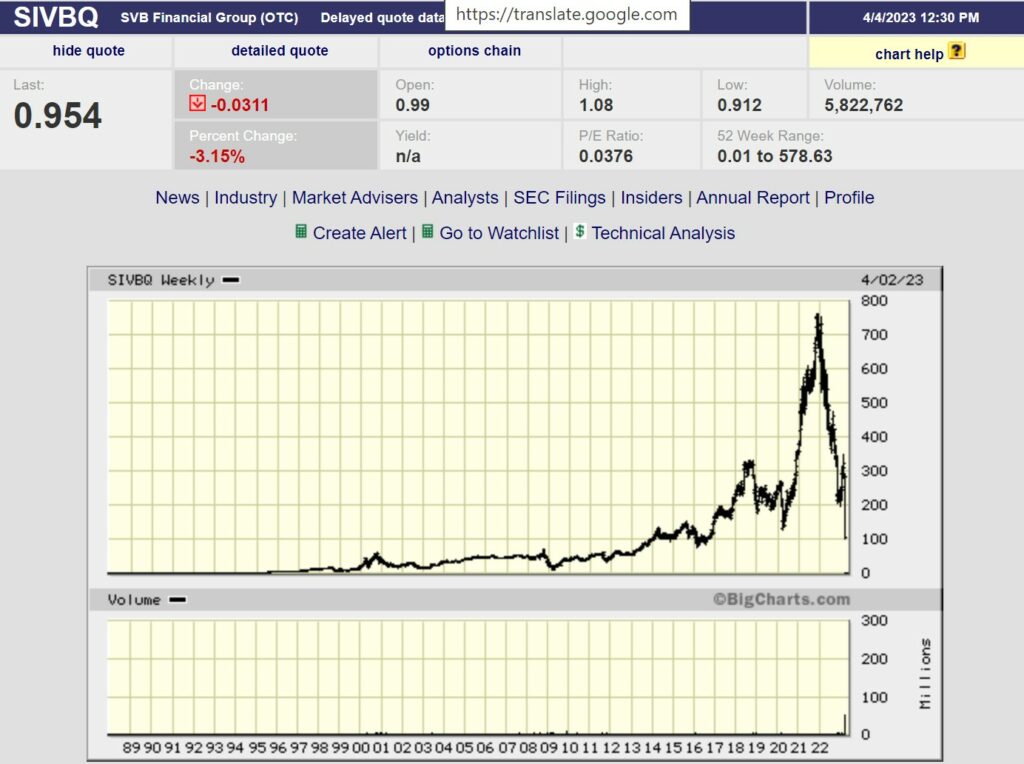
硅谷银行风控输在久期错配,把活期存款拿去购买长期国债。面对储户取款要求不得不一边折价处理资产,一边又高调借钱,在资讯高度发达的智能时代,恐慌迅速发酵,令其在48个小时之内导致滔天巨祸。所以面对市场先生,无论是谁都必须保持谦卑恭敬之心。而对于处理压力资产最最重要的启示就是:借钱要低调。
Blackstone Default: Elephant Troubled by Ants

On March 3, 2023, the Blackstone Group experienced a default event involving $562 million in commercial real estate mortgage-backed securities. The securities were collateralized by a series of office buildings and shops owned by SpondaOy, a Finnish enterprise acquired by Blackstone in 2018. Blackstone had applied for an extension from its creditors to dispose of assets and repay debt, but the creditors voted against further extensions, resulting in a default confirmation by loan servicer Mount Street.
How could Blackstone, managing nearly $10 trillion in assets, fail to come up with $562 million? The fact is that Blackstone couldn’t produce the cash. The real estate market has been poor since 2022, and investors have been redeeming their funds. Blackstone had to sell assets in a down market, which led to a vicious cycle and forced Blackstone to default. The default has had significant impacts on Blackstone and its related creditors: Blackstone has had to review its asset disposal plan and seek alternative ways to repay its debts, while creditors have faced the risk of investment losses.
Blackstone’s risk management failed in asset liquidity management and cash flow management. Its risk testing was too optimistic, and its debt legal structure was too confident in its product design. In 2018, Finnish office buildings and shops were still hot properties in the investment market. Even stress testing might not have anticipated the extreme impact of the COVID-19 pandemic on commercial office buildings and shops, and its debt legal structure forced Blackstone into a position of rigid redemption.
Although the $562 million bond default may be just a small amount for Blackstone, which manages trillions of dollars in assets, its reputation has been damaged, and the volatility and risks of the commercial real estate market have been highlighted. It is believed that Blackstone, established in 1985, will carefully evaluate relevant risks and take appropriate risk control measures. After all, the price fluctuation of underlying assets is only driven by monetary prices, and the real value of assets is the key to sustained profitability. This, we believe, Blackstone understands better than anyone.
UBS acquires Credit Suisse: perpetually neutral, Only the 6-day

After the bankruptcy of Silicon Valley Bank, the “aftershocks” hit Europe, and the Swiss century-old bank, Credit Suisse, also fell like a domino. Credit Suisse, Switzerland’s second-largest bank, announced in its annual report on March 14, 2023, that its attributable net loss for 2022 amounted to CHF 7.3 billion. On the same day, Credit Suisse’s European and American stocks plummeted, causing a crash in the US banking sector. The Swiss government intervened urgently and facilitated the acquisition of Credit Suisse by UBS. According to Colm Kelleher, Chairman of UBS Group, on March 19, UBS plans to acquire Credit Suisse and create a wealth management institution with total investment assets of $50 trillion. Credit Suisse shareholders will receive 22.48 shares of Credit Suisse stock for each UBS share, equivalent to CHF 0.76 per share. UBS will receive 50% downside protection on non-core assets. Both banks can use the existing tools of the Swiss National Bank without restrictions and obtain liquidity from the Swiss National Bank.
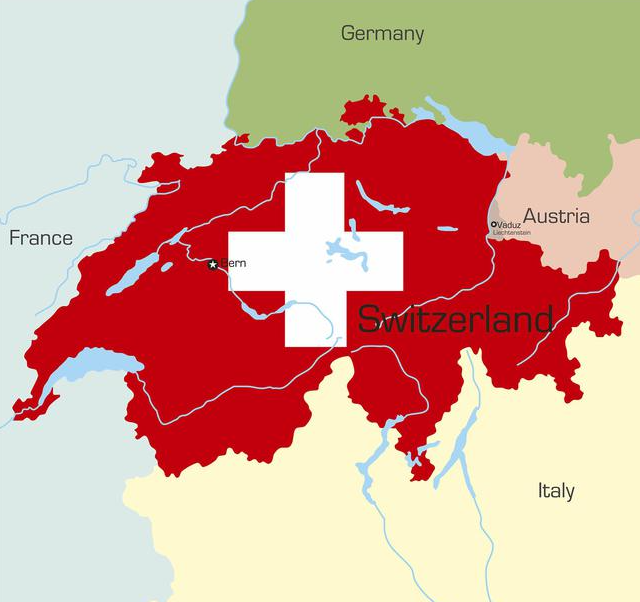

On March 23, 2023, Switzerland announced that it was restoring its permanent neutral status, lifting all sanctions on Russia, unfreezing funds of Russian clients, and stopping the export of weapons to Ukraine. Switzerland hoped to regain the trust of non-Western clients and re-establish their confidence in the safety of their funds with Swiss banks.
On March 24, the US Department of Justice announced an investigation into whether UBS and Credit Suisse helped Russian oligarchs evade sanctions.
On March 29, Switzerland announced that it was abandoning its neutrality and reinstating sanctions against Russia, freezing Russian funds once again, and also pledged to provide 25 Leopard tanks to Ukraine to demonstrate its unwavering commitment to defending Western values.
At the end of March, three branches of HSBC in Hong Kong started a trial of 7-day-a-week service, with employees suspending their vacations to provide services for appointment-only customers.
The acquisition of Credit Suisse by UBS has nothing to do with the people of New Zealand, perhaps only with wealthy residents of New Zealand who have money in UBS and Credit Suisse in Hong Kong. The location of their funds is indeed a concern.
Is banking in New Zealand safe for depositors?
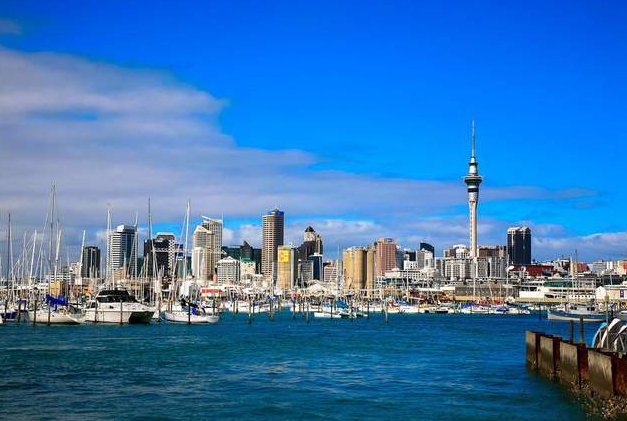
New Zealand, known for its beautiful scenery, friendly and honest people, and upright and kind social atmosphere, is the last pure land in the world. Will the financial market turmoil in the northern hemisphere trigger a domino effect and affect New Zealand’s financial market? The answer is definitely yes, but the specific impact depends on individual asset portfolios.

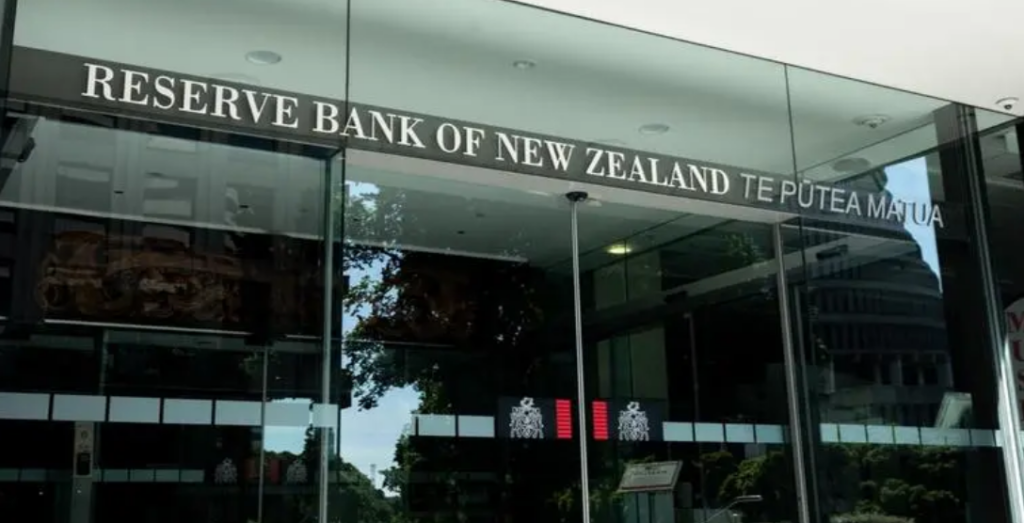
As is well known, banks in New Zealand are subject to high regulation by the Financial Markets Authority (FMA) and the Reserve Bank of New Zealand (RBNZ), the country’s financial regulatory bodies. These two agencies are responsible for overseeing and monitoring the business of banks, insurance companies, securities exchanges, and other financial service providers. The aim of regulation is to ensure that these institutions comply with the law and regulatory requirements, in order to protect the interests of consumers, investors, and the entire financial system. Protected by New Zealand law, depositors are insured for up to NZD 100,000 at each bank. Therefore, those with money can open accounts with multiple banks and protect their assets to the greatest extent possible, given their understanding of the policies.

It is well-known that banks in New Zealand are highly regulated, with the Financial Markets Authority (FMA) and the Reserve Bank of New Zealand (RBNZ) serving as the country’s financial regulators. These two organizations are responsible for supervising and monitoring the activities of banks, insurance companies, securities exchanges, and other financial services providers. The purpose of regulation is to ensure that these institutions comply with laws and regulations, in order to protect the interests of consumers, investors, and the entire financial system. Depositors are protected by New Zealand law, with the maximum payout per bank being $100,000. Therefore, those with money can open accounts with multiple banks, and with a good understanding of policies, can protect their assets as much as possible.
Sir John Key, former Prime Minister of New Zealand and a former banker, spoke on the program “Law Pinglun” hosted by prominent New Zealand lawyer Chen Ping, saying “Silicon Valley Bank is about the same size as ANZ Bank in New Zealand, but Silicon Valley Bank has enormous asset expansion, which is never allowed in New Zealand. Also, Silicon Valley Bank focuses on a single (technology) area, so I think it is completely different from New Zealand.” John Key has great confidence in New Zealand’s banking sector and also shared his personal experience, saying “From a tax perspective, the right level of debt is a good thing. But don’t have too much debt, and it is very important to diversify your asset allocation.”
If bank deposits in New Zealand are considered safe, then individuals with debt are inevitably affected by the constant rise in interest rates under the country’s monetary tightening policy. According to the latest data released by New Zealand credit reporting agency Centrix, as of the end of February 2023, there were 18,900 accounts nationwide that were unable to repay home loan interest, accounting for 1.29% of the country’s 1.46 million accounts. There are 416,000 people with consumer loans nationwide, and the report indicates that this number will deteriorate with changes in interest rates. The Reserve Bank announced an OCR hike of 50 basis points to 5.25% this afternoon, adding fuel to the possibility of leveraged assets defaulting in the future.
Newland Capital is dedicated to providing the most competitive services in the market, with a professional spirit of seeking excellent assets for fund owners and finding funding for asset owners in need.
If you need financing, please contact us promptly. If you have funds and are looking for cost-effective, safe, and stable investment assets, please also call Ms. Hannah:+64 22 0432759.
